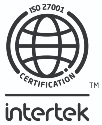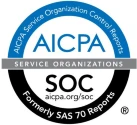MGAs: Navigating the Tipping point to Lasting Growth Webinar Recap

In March this year, we posted an article on recognising and addressing the 'tipping point' of the MGA business cycle, i.e., the realisation that adopting a complete technological solution will be necessary to support your MGA operations and scale your business.
It raised many follow-up questions from growing MGA firms – such as how companies can navigate change management strategies properly, and the pivotal role of configurable core insurance platforms like INSTANDA in driving profitability. So, here at INSTANDA, we decided to organise a dedicated webinar on MGA tipping points and we invited a number of MGA experts to share their views.
The Webinar was hosted by INSTANDA's Business Development Team on 9th November 2022. In this article, we have gathered some key messages from the Webinar, including the first steps MGA firms should take to build on the momentum of their start-up days. It will also outline tech tips for scaling MGA operations effectively and going beyond the first five to ten million in gross underwritten profits.
Webinar overview – MGAs: Navigating the Tipping Point to Lasting Growth
Our MGA Webinar panel featured the following guest speakers;
Douglas Ver Mulm: Co-Founder of Stable Insurance – a commercial auto MGA that's focused on the new mobility space, including ride, share car share delivery
David Gritz: InsurTech NY - the largest InsurTech community in North America, running a growth stage accelerator, in-person events and an MGA development lab
Jason Anthony: CEO and founder of MGAM Ltd - an MGA that underwrites UK and US SME high-volume, low-premium business with INSTANDA's core platform tools.
INSTANDA opened the session with an audience poll, asking MGAs to share their biggest concerns in the industry. The survey revealed that the two biggest pain points amongst viewers were tech solutions and funding. Towards the end of the discussion, we took audience Q&As to drill down into some of the finer points raised in the audience poll.
Moving beyond the start-up stage of your MGA
The panelists shared the stories of realizing their business' own tipping point. For Stable Insurance, Douglas noted that the team could utilize masses of rideshare data in ways their insurance carriers couldn't. The MGA model is perfect for testing and adjusting underwriting based on new and evolving data sets, so his advice is to use it to your firm's advantage.
Jason took his previous experience from Oxygen Insurance Managers MGA and built a business that was defined by its processes from the start—gathering and analyzing complex data to enhance its distribution channels and underwriting capabilities.
InsurTech NY network sees many high-growth MGAs expand by delivering substantial value to their retail distribution partners. Hippo is one example of a brand that built out its ecosystem of retail agents by perfecting its underwriting capabilities and figuring out the key channel to boost the company's gross written premiums.
"A lot of MGAs believe they need to have differentiated distribution models to succeed. But at the end of the day, it's really having better underwriting. That's your secret, giving strong value to your retail distribution partners," said David.
Technology solutions should underpin your MGA expansion strategy
Core Insurance Platforms like INSTANDA are integral to an MGA's scalability. The Webinar discussed several reasons why this is the case.
They allow MGAs to experiment with products and iterate quickly without placing too much strain on developers and engineers.
Automation enables underwriters to look at submissions and make decisions quickly, which is key to meeting capacity provider requirements.
Dedicated Insurance SaaS platforms help MGAs maintain regulatory compliance protocols as they evolve. In the US, for example, compliance rules change from state to state. Douglas noted, " Once you get to scale, compliance is not something you can easily do manually."
Developing your MGA business model with a platform like INSTANDA allows you to plan two or three years ahead of your volume requirements, so you can scale up operations when the time comes without setbacks.
Low-code/no-code product-building platforms help MGAs design desirable propositions from scratch for minimal costs. "What you can't afford to do is take three months because you're relying on third-party services to provide changes to a product," said Jason.
Core insurance platforms also give capacity providers confidence that an MGA can adjust to new market conditions quickly. Optimized insurance software demonstrates a firm's ability to remain competitive at all times.
Transforming Company Culture for Sustained MGA Growth
The panel discussed company culture's role in expanding an MGA's revenue-building potential, including;
Ensuring that your whole team can work remotely instills confidence in your capacity providers. It shows them that your tech stack is robust enough to adapt to new circumstances, bring on new carriers, and retain business in the long term.
Growth at all costs shouldn't be the end goal for MGAs. David believes an MGA's first goal should be growing profitable premiums. He elaborates,
"Your second goal is to grow the company as quickly as possible. Because ultimately, if you are a growing non-profitable premium, you're losing someone else's money, which is actually worse than losing your own money because carriers can say they're going to pull your capacity. Now you don't have a business."
INSTANDA's Core Insurance Platform puts MGAs in Full Control of their Future
Finally, we opened the floor to discuss options for MGAs looking to build a scalable business model from the ground up.
Jason concluded the Webinar discussion with this top tip, "My advice would absolutely be to go for a platform that you can configure because then you are in charge of your business. You are not reliant on a third-party software house."
INSTANDA equips scaling MGAs with all the solutions they need to digitise their business model and adapt it to changing market headwinds.
To watch the Webinar on-demand, you can tune in here. And, if you would also like to see INSTANDA's transformative capabilities in action, book a free demo with us today.





